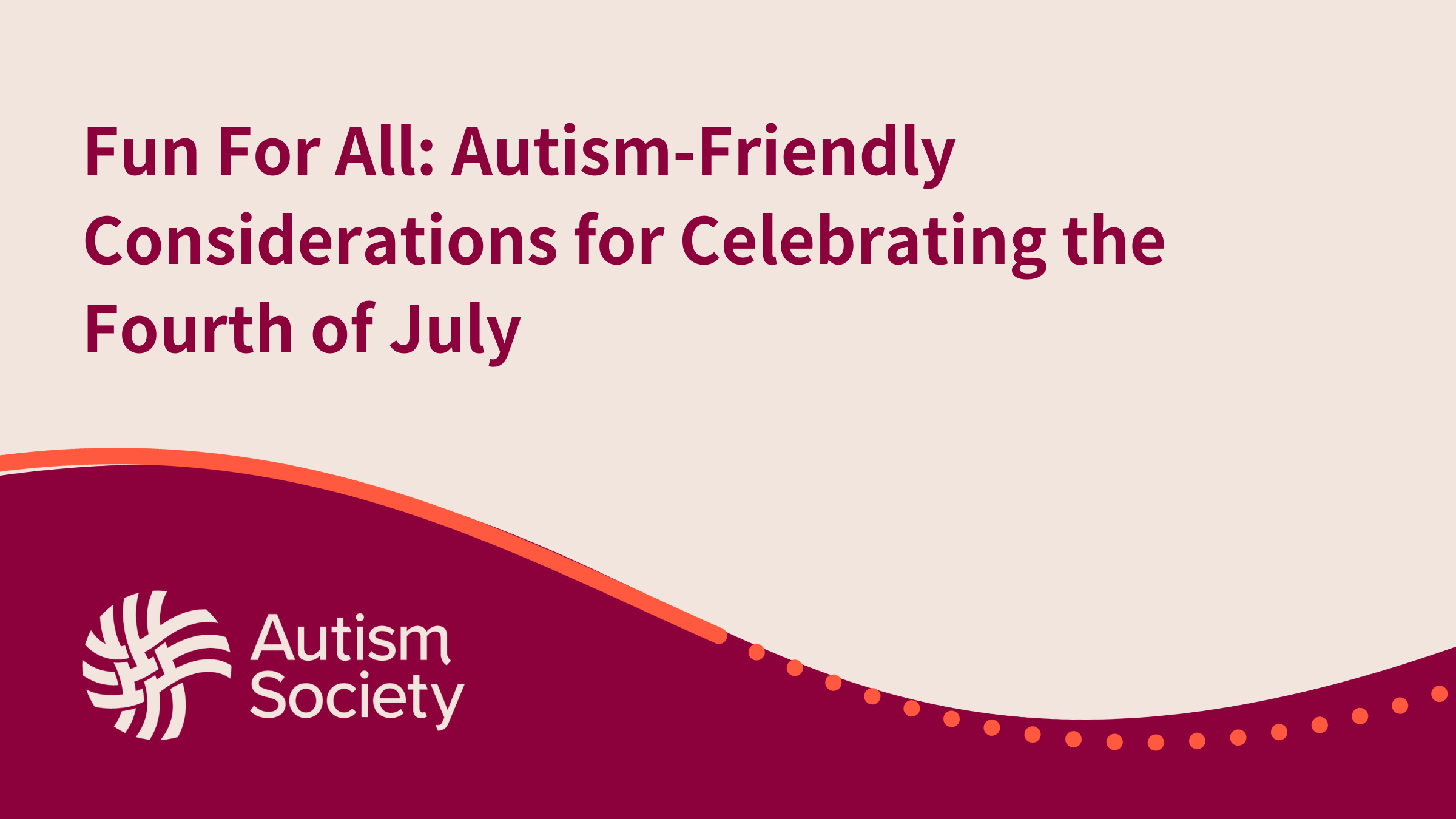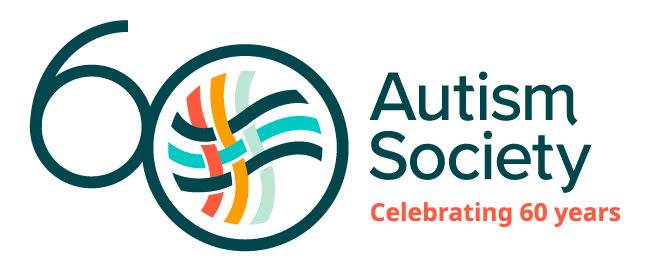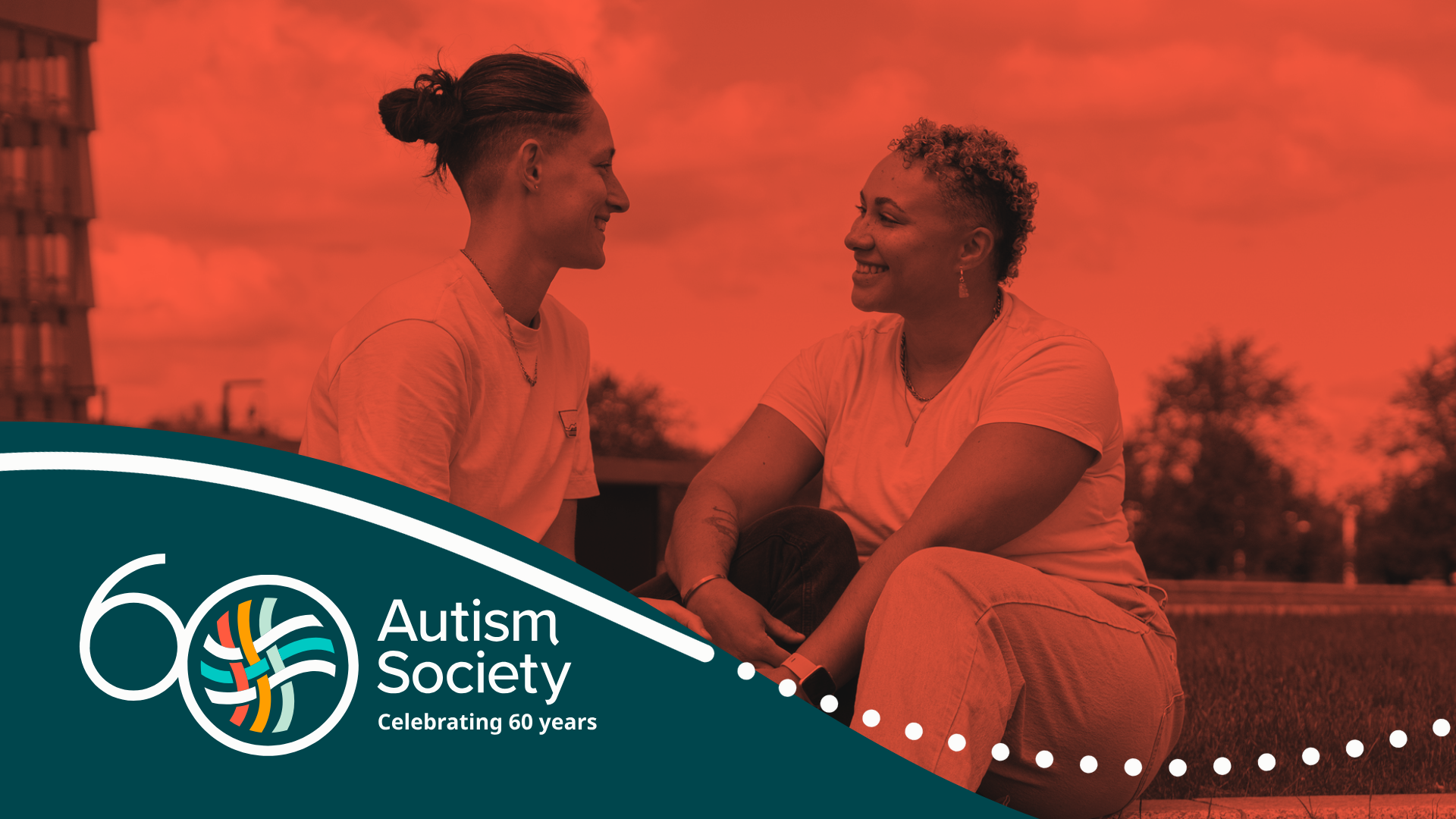
Rockville, MD, June 21, 2024 – The 4th of July is a favorite summer holiday for many. Summer weather, grilling season, festivals, and fireworks can make it a memorable time of year. But while the 4th of July is cherished by many, for others it can be stressful.
Autistic children and adults may particularly find the 4th of July challenging due to large crowds, loud fireworks, and overall unpredictability. By taking proactive measures, we can ensure that 4th of July celebrations are inclusive and welcoming to everyone. The purpose of this blog is to offer practical suggestions that can help alleviate stress and anxiety associated with the holiday, empowering all to fully enjoy the festivities.
Plan Ahead & Foreshadow
The Autistic neurology thrives on routine and predictability. If your 4th of July holiday will be different from your family’s typical routine, you can help ease anxiety by sharing as many details about what to expect as possible.
Below are some examples of details to consider discussing prior to the holiday. If your child is a visual thinker consider sharing these details visually through pictures or written language.
You might also consider developing a social narrative or download ours below.
- Review the schedule of the day
- Foreshadow Known Changes from Past Year’s Traditions
- Highlight what routines or preferred activities will be the same
- Review how you’ll be getting from place to place
- Foreshadow any activities that might require waiting
- Review photos or lists of places you’ll go
- Review the names and photos of the people you will see
- Foreshadow the sensory experience
Safety First, Always in All Ways
In addition to explaining what will happen, a review of safety rules can help reduce anxiety for all. Practicing safe crossing the street behavior, designating a safe space at the barbeque or fireworks display, waving a flag instead of a sparkler, or planning for other safety measures important for your child prior to the big day can also help the family remain safe and focus on the fun!
Fun for Whom?
Each person is unique with different ideas of what is fun. We often want to share fun experiences with the people we love and we can feel hurt if they don’t love something as much as we do. But remember each person has their own idea of what is fun, and that includes their own way of expressing enjoyment. If you’re a parent or family member of an Autistic person, manage your own expectations of how your Autistic child or family member is expected to participate in holiday celebrations. Make sure they have access to activities they find fun and accept the ways that their joy is expressed.
Prepare for the Sensory Experience
Each person with Autism (and without) experiences the world through their senses differently. Use the knowledge you’ve gained about your loved one through past experiences and what they communicate about sensory challenges to prepare for the holiday. If a person’s senses are overwhelmed, they won’t be able to enjoy an activity, so preparing for the sensory experience is critical. Communicate with your child about what to expect, and what strategies or sensory tools they’ll have access to if they begin to feel overwhelmed.
Stressor & Considerations
| Noise
|
Noise-cancelling headphones or access to preferred sounds/replacement sounds, and comfort items. If sounds trigger proprioceptive difficulty, have a weighted toy, lap pad, or blanket along, or give deep pressure during the fireworks display.
|
| Food | Bring comfort food that your child regularly enjoys. Trying new foods is most successful in non-stressful situations, or when a person has expressed interest in trying something new.
|
| Bright Lights | Bringing sunglasses, or access to a preferred visual input to help focus.
|
| Physical Crowding
|
If able, have a member of your group arrive early to reserve a space on the edge of the crowd. Bring along a blanket to allow a wide berth of personal space and to give others a visual boundary. Plan for breaks to allow for regulation away from crowds.
|
| Visual Crowding
|
Bring items that provide preferred visual input for the person to focus their attention on. Plan for breaks to allow for regulation away from crowds.
|
| Prolonged Sitting, Standing or Waiting
|
Bring favorite sensory fidgets, preferred items, or other activities.
|
| Unfamiliar Surroundings
|
In unfamiliar surroundings, it can be more difficult to tune into our own body’s signals. Take frequent bathroom breaks, and offer food/snacks regularly to ensure that the physical body is taken care of.
|
| Sensory Overstimulation
|
Know signs of sensory overstimulation. Identify a “go-to” space for a sensory break, whether that is a place to walk, spin, and jump freely, or a place to get quiet, dark, alone time.
|
Communication Preparation
Having supportive plans to help your child communicate can set the stage for success. Does your child need an exit strategy and a way to request it? Do they have a way to request a break from the loud noises and new smells? Some children benefit from planned check-ins and reminders, while others do best with visual supports.
Create Your Own Traditions
Read our visually supported narrative that describes the who, what, where, when, and why of Independence Day, and review traditional ways to celebrate. If the traditional ways of celebrating the Fourth of July don’t resonate with you, your child, or your family, talk about ways to celebrate Independence Day or show patriotism that would mean the most to you. Together you can create your own traditions. Check out this resource from our friends at the Autism Society of MN to learn more about creating your own Autism-strong-family-traditions.
Emotional Regulation Strategies
Communicate with your child about if and how they’d like assistance if they start to feel dysregulated. Do your best to ensure your child is well-regulated before heading out to a party, festival or other event. Ensure they have access to the tools and the space needed to maintain or regain regulation throughout the course of the celebrations.
Rely on Your Expertise
Remember, you are an expert when it comes to your family! Traditions and summer celebrations look different for all families. For some children, less is truly more. For others, bring on the firecrackers and the red, white and blue! The goal is for your child and family to have fun and be successful. Trust your instincts and enjoy your time together, whatever that may look like for you!
Share:





